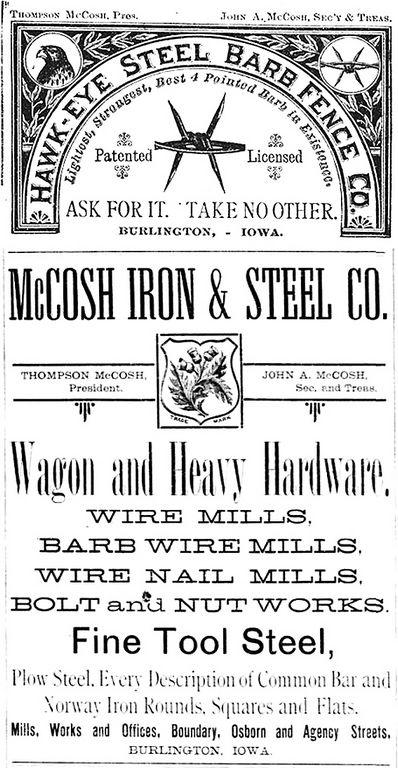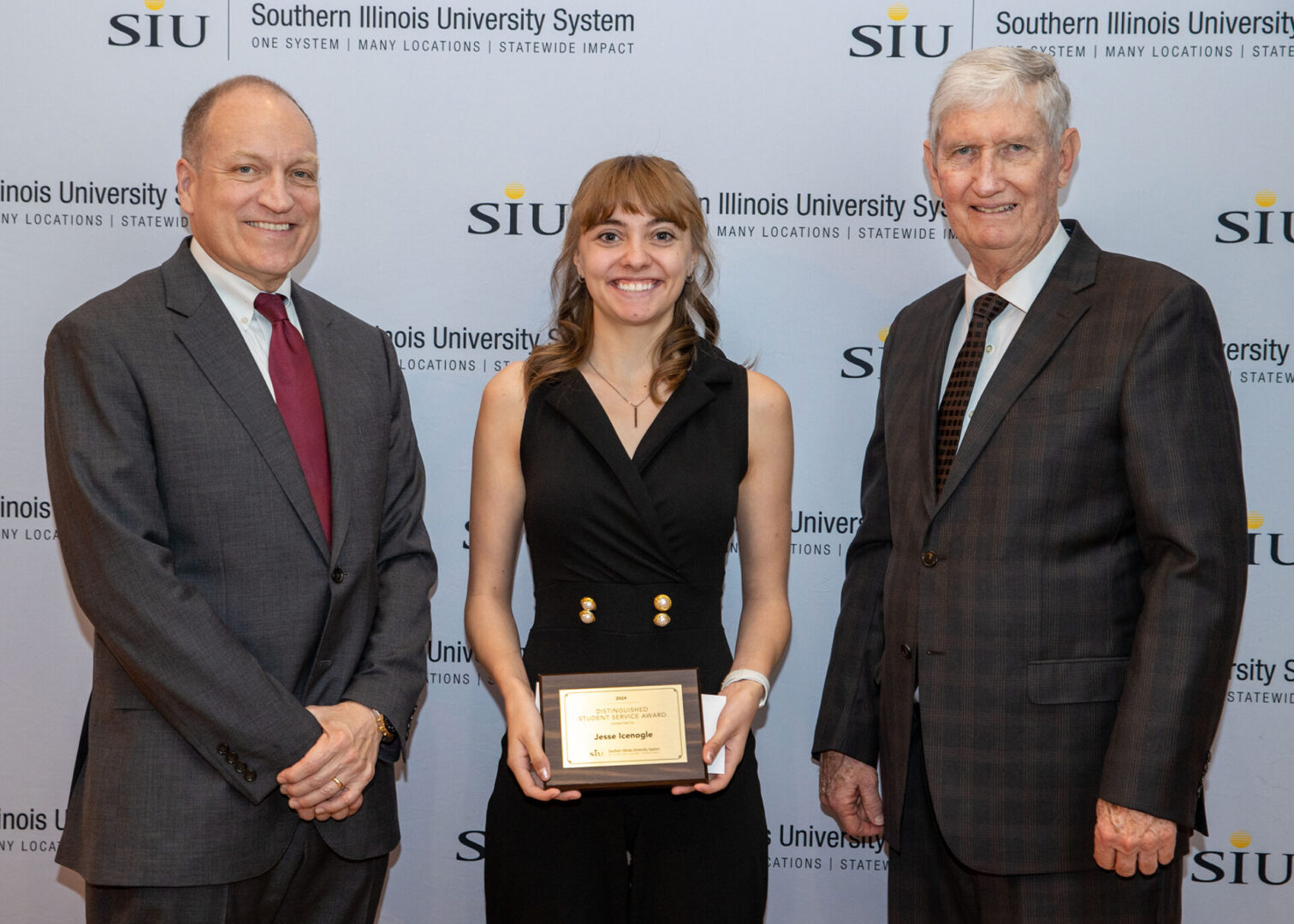Story Courtesy of Jeff Rankin, Monmouth College Historian Author and Literacy Critic.
Lomax Township in southwestern Henderson County is a quiet rural area containing fewer than 400 homes. That’s a far cry from the vision of an entrepreneur named Thompson McCosh, who at the turn of the 20th century believed he could establish an iron and steel manufacturing metropolis there that would rival his native Pittsburgh.
In 1897, McCosh secured an option on 1,200 acres at Iowa Junction, one mile east of the village of Lomax, and laid out a town that he named Ferrodale. On paper, the three-mile by two-mile site was a potential gold mine, as it stood at the junction of three busy railroads. The Toledo, Peoria and Western ran from Burlington to Peoria and connected to the east coast. The CB&Q ran from Burlington to Carthage and Qunicy, while the Santa Fe ran from Chicago through Fort Madison. The nearby Mississippi River also provided an inexpensive potential route for shipping steel to St. Louis and New Orleans.
Moreover, McCosh was a veteran steel executive who was convinced the ground below Lenox Township was rich in iron and aluminum ore, as well as petroleum and natural gas. He announced he would first build his own factory at Ferrodale, following which other factories would follow—particularly since he offered free building sites, free water and free switching. He envisioned a utopian city patterned after the Illinois town of Pullman that would be populated largely by Scandinavian immigrants. Land would be offered at the bargain price of $75 per acre, payable over three years.
McCosh’s ambition was not limited to city building. He also hoped to get into the railroad business, proposing the Mississippi Valley Electrical Railroad, to run from Ferrodale north to Muscatine, via Oquawka, Keithsburg and New Boston. It would possibly have extensions to Cedar Rapids, Rock Island and Beardstown.
Despite assurances of great interest among investors in Pennsylvania, the Ferrodale project seemed to encounter constant roadblocks, none of which deterred the enthusiasm of McCosh, a former Burlington manufacturer, who was then based in Chicago. In 1899, he wrote a hopeful letter to the editor of the Burlington Gazette:
“I am corresponding with Pittsburg parties with a view of establishing a tin plate works and a sheet iron mill at Ferrodale, to be built entirely by eastern capital and Pittsburg skill, which when consummated, will add to the population tributary to Burlington by the employment of at least 500 hands. The fine location of Ferrodale and all the advantages, both natural and acquired we have to offer, is attracting far and near.”
At the same time, it was rumored that $90,000 in stock had been sold and several factories had asked for land. In June 1899, McCosh announced he had all the money he needed and the only thing that was holding him back was the land titles. Yet there was no action, except that McCosh moved his Ferrodale Land Company from Chicago back to Burlington.
Two years later, in the spring of 1901, McCosh was suddenly back in the headlines. Monmouth’s Warren County Democrat reported that he had paid them a pleasant call and reported that “in the near future a new manufacturing city will spring up in Henderson County that will equal in many respects the largest industrial centers of the country.” The paper reported that “while he has had many drawbacks to contend with, he has never faltered in the belief of its ultimate success and the stock is now being rapidly taken.”
Just seven months later, however, the Burlington Hawk-Eye reported that an auction was held for the sale of the furniture of the Ferrodale offices, which had been seized to satisfy the landlord’s claim for rent. “This seems to close the history of Ferrodale,” the paper wrote. “It may, or may not, have been the dream of a speculator. But it was with feelings of regret that some of the onlookers saw the various articles disposed of.”
But McCosh was not that easily discouraged. In January 1903 it was announced that Ferrodale was being advertised more extensively than ever. A new prospectus told of Ferrodale’s extensive deposits of aluminum that were 45 to 63 percent pure. In addition, there were deposits of Fuller’s earth, fire clay and clay for the manufacture of superior paving brick and red building brick. McCosh added that superior oil and natural gas only awaited development.
In March 1903, the LaHarpe Quill reported that McCosh and others had loaded 14 cars of machinery in Chicago for shipment to Ferrodale. It would arrive with 25 of the best machinists in Chicago and it was thought that the machines could be installed in about 120 weeks. It was noted that McCosh had contracted with lumber companies in Burlington and Dallas City for building materials.
Mysteriously, there is no evidence that the machinery ever arrived, or that a factory was ever erected at Ferrodale. Over the next four years, McCosh would continue to promote Ferrodale, despite his advancing age and declining health.
On June 6, 1907, McCosh died at age 76 in Mercy Hospital, Burlington. Monmouth’s Atlas newspaper wrote: “He knew the Mississippi valley like a book and realized its possibilities. He maintained that this whole country covers rich ore deposits, exceeding in richness any yet discovered. The center of this great deposit, he declared, laid down in the valley in Henderson county and there he went with dream of millions, wealth and power. The historic site of Ferrodale was laid out. Prospectuses of the future ore center were scattered over the entire country and the dream became a seven-day wonder. Lots were sold and the boom seemed about to realize, when McCosh lost his grip and the bubble bursted. But hope never deserted. Time after time he has tried to resurrect the scheme but always without success.”
Thompson McCosh was the older brother of Warren County newspaper editor George G. McCosh, who founded the Roseville Gazette and later took over management of the Monmouth Evening Gazette. Born in Pittsburg in 1831, Thompson was one of six brothers and three sisters who emigrated to the Midwest in the 1850s.
In the spring of 1855, he partnered with Robert Donahue to establish Donahue & McCosh—a Burlington marble firm that specialized in tombstones and fireplace mantles. After 10 years of steady growth, they embarked in a new enterprise and sold a third interest in the marble business, allowing them to open an iron and heavy hardware business. They built a five-story warehouse in Burlington containing 30,000 square feet. By 1882, sales exceeded $600,000.
The partners then organized the Hawk-Eye Manufacturing company to make spring wagons and buggies. After the invention of barbed wire, they created the Hawk-Eye Steel Barb Fence Company, in partnership with an inventor from Marshalltown, who had developed a machine that reduced the cost of producing barbed wire by 50 percent. McCosh successfully applied for a patent, and since his name was on it, he thought that gave him a hand up in the business.
When McCosh then sought to bring two of his brothers into management positions, his partner Donahue objected, causing a rift between the partners and a dissolution of the business. The iron and steel company had been the largest iron working institution between St., Louis and St. Paul.
At about this time, the eastern “barbed wire trust” forced many manufacturers out of business, including Hawk-Eye, which went into receivership in 1891.
By 1895, McCosh picked himself up again and with partners incorporated the Chicago Nail and Wire Company, which was apparently not a factory but a commission business in iron and steel.
Despite his financial frustrations and dying essentially penniless, McCosh remained an admired figure in the Burlington community, who was active in the Presbyterian Church and the YMCA. Four decades after his death, he was still remembered fondly in newspaper columns as an energetic and charismatic entrepreneur.
For Maple City Memories, I’m Jeff Rankin.














